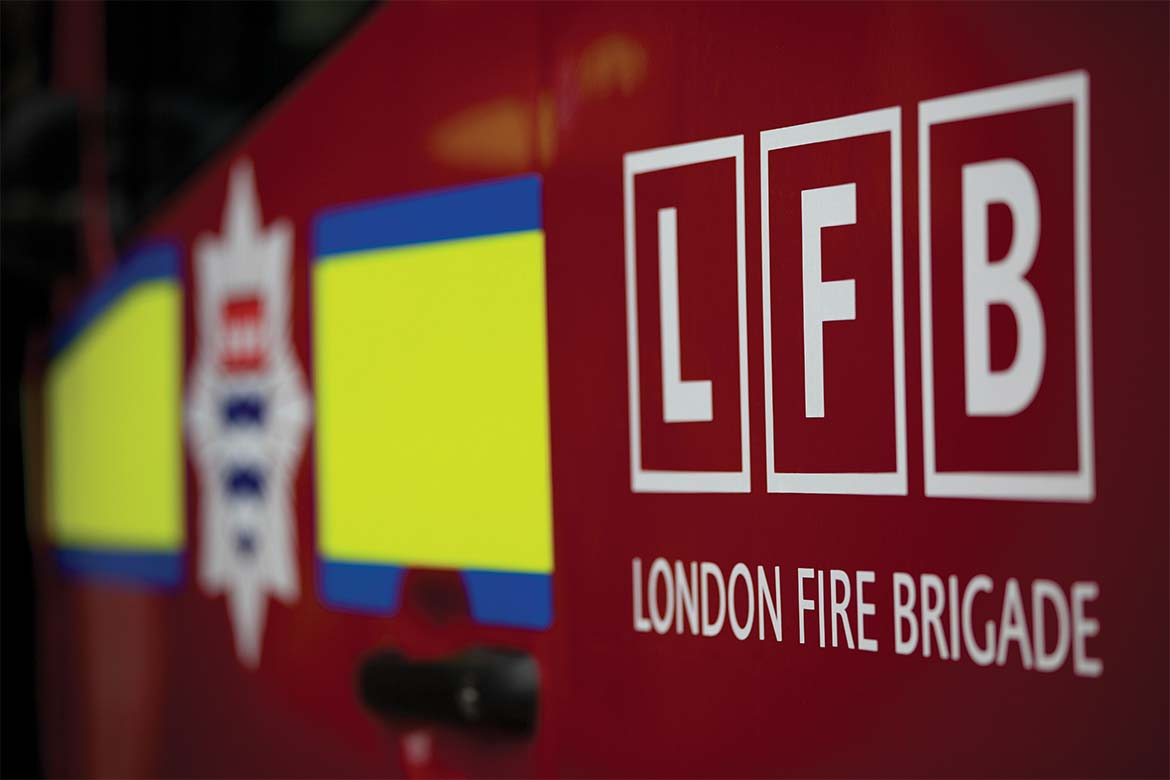Call the Fire Brigade to work with communities
The City of London exhibits many of the same risks that any Fire Brigade Commander around the country experiences, but with a residential community of about 8,000 and a business community of about 330,000 commuting in every day, Group Manager John Simpson has had to take an innovative approach to delivering Community Safety – talking to Security and Facilities Managers.
“Our principal community is business and for us to engage effectively with our community we’ve had to identify who the gatekeepers are; in the City of London that means security and facilities managers.”
The figures for emergency incidents tell the tale of how risk is distributed in the City of London. In the year to end of March 2013, 69 primary fires (fires where there was an insurable loss) were attended of which just 5 were accidental fires in the home of residents, whilst 50 were in business premises where the Regulatory Reform (Fire Safety) Order 2005 applied.
Unwanted calls
Perhaps, most shockingly, fire engines made an emergency response to 844 unwanted fire signals (UwFS – automatic fire alarm false alarms transmitted to the fire service) and 50 incidents to release people shut in a lift car (PSiL). The financial, opportunity and environmental costs to the London Fire Brigade and London council tax payer in responding to these calls are enormous. Automatic fire alarm systems (AFAs) provide early warning in the event of fire and can greatly reduce the risk to life and limit damage to property. Indeed the early warning of fire given by AFAs is often pivotal to the effective implementation of the emergency evacuation plan for both domestic and non-domestic premises. Less than optimal performance of these systems through poor design, installation, maintenance and management may have a detrimental impact on the effective operation of the emergency evacuation plan. The number of UwFS can provide the London Fire Brigade with a key indicator of the inadequate management of fire safety systems within a premises.
Security and Facilities Managers are the key to reducing the number of unnecessary calls to the London Fire Brigade in the City, particularly around UwFS and PSiL. The Station Manager at City of London based Dowgate Fire Station, Steve Norman, designed and has been delivering City Business Engagement Workshops, which recognise that these professionals have the often daunting task of balancing fire safety legislative requirements, maintenance regimes, the management of contractors, false alarms from fire detection systems and people stuck in lifts with day-to-day business continuity.
By helping the Managers to understand the service that the London Fire Brigade delivers and by helping the Lonond Fire Brigade to understand some of the obstacles Security Managers have to overcome in their role, the overall service, working relationships and incident response will become more effective, more efficient and appropriate to the risk.
London fire brigade workshop
The free, interactive and practical workshop is designed to provide advice including fire risk assessment, improving incident response, damage control and how security staff can manage their fire systems more efficiently, particularly in the reduction of false alarms, which will not only improve Business Continuity but ultimately make their business a safer place for their staff and customers.
The workshop is not a training session for security guards but an opportunity for commissioners of security contracts and Security Managers to consider the role which is expected of their security staff in the management of fires, fire alarms and other incidents. They can then build that into their contracts and training to ensure that the competence of the staff they are employing is commensurate with the role they are being asked to carry out, which may be risk critical to the safety of your visitors, tenants and staff and your business continuity.
“The ‘ask’ that we’re making of City Security Managers is that when they leave the workshop they go back to their buildings and look again at how they’re managing safety critical situations,” said Steve. “The freedom to deliver these workshops given to us by Principal LFB managers seems to be working as UwFS are down over 20% this quarter in comparison to the same period last year. If nothing else, that has to be saving businesses enormous amounts of revenue in lost working hours.” With the proposal to introduce or increase cost recovery for UwFS and PSiL set out in the Fifth London Safety Plan (London Fire Brigades Integrated Risk Management Plan), there is another financial incentive for businesses to further reduce these calls.
Fire brigades around the country are facing similar challenges, with Cheshire, West Midlands and Hampshire brigades working with their communities on the response to automatic fire alarms. Contact your local brigade to find out about the policy for your area.
If you’re based in the City of London and are interested in further information about City Business Engagement Workshops, email LFBCityBusinessEngagementDay@london-fire.gov.uk
John Simpson
Borough Commander
City of London London Fire Brigade


